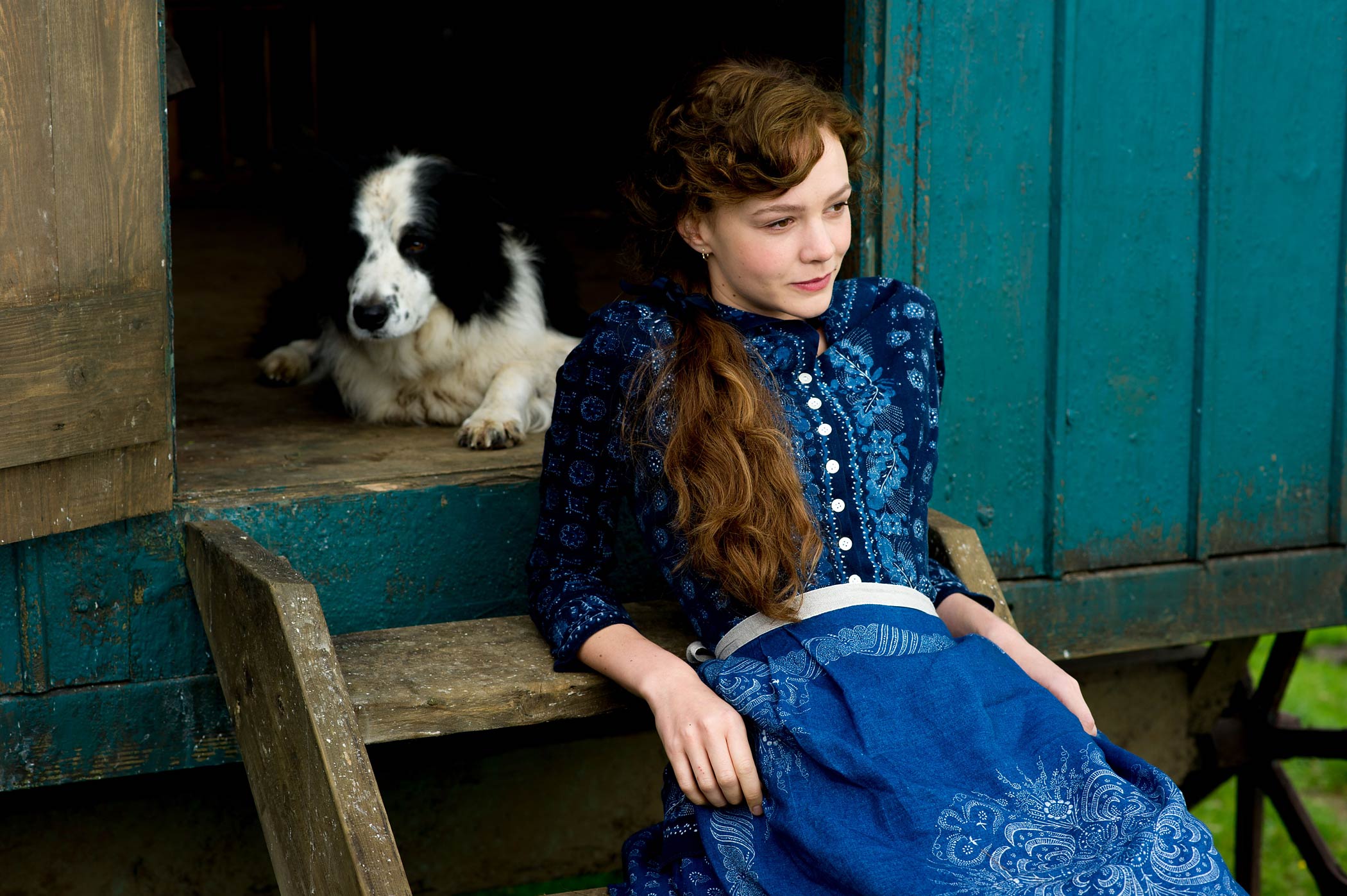
What’s in a name? Sometimes quite a bit. The Hunger Games author Suzanne Collins has said that the protagonist of her series, Katniss Everdeen, “owes her last name to Bathsheba Everdene, the lead character in Far From the Madding Crowd.” Audiences of the lush new film adaptation of Thomas Hardy’s 19th-century novel, starring Carey Mulligan, will find it easy to see why. Like Katniss, Mulligan’s Bathsheba is determined and independent—though she’s often unsure of her own feelings.
“She’s a real contradiction,” Mulligan tells TIME of her character, who runs her own farm and grapples with multiple suitors. In fact, it was those very traits that attracted Mulligan, who has shied away from British costume dramas in recent years, to the part. “I was never that interested in playing the girl who starts the story looking for a husband,” she says. But Bathsheba “starts the story saying that she doesn’t want one and nor has she given it any thought. I loved that in the first few chapters of the book she’s already turned down a marriage proposal from [Gabriel Oak] who is, in the film, a good-looking hunky man.” (Oak is played by Belgian actor Matthias Schoenaerts.)
“She was just such a forward-thinking modern woman,” says Mulligan. That’s surprising, considering the fact that the character was written more than 140 years ago.
Though Mulligan has played a range of nuanced characters throughout her career, with starring turns in An Education, Shame and The Great Gatsby, the actress still says that quality roles for women in Hollywood are limited. When mention of the Bechdel Test comes up, Mulligan asks for a clarification of the rules. (Created by cartoonist Alison Bechdel, the test asks whether a film has a scene with two or more women who speak to each other about something other than a man. If the answer is yes, the film passes.) She thinks for a moment. At last, she says, “I’m literally going through all the roles I’ve done and seeing which passed the test.”
Like most Hollywood films, not many of Mulligan’s pass the test. Even Far From the Madding Crowd, with its progressive heroine, just barely squeaks by with a passing grade. Modern as she is, Bathsheba spends a lot of time in a male-dominated world. That’s not to say that stories about women moving alone in a man’s world don’t have value, as Mulligan’s own career shows—yet she thinks that Hollywood desperately needs more, and better, roles for women.
She says her next project, the turn-of-the-century era film Suffragette, starring Meryl Street and Helena Bonham Carter and directed by Sarah Gavron, gave her the “thrilling” opportunity to “be working with a bunch of women. I’m so used to being a girl sitting in a room with 15 men and there [seems like] there are always very few girls in the room. This was the complete opposite experience and you could just see everyone relishing it.” Still, she says, the experience was a rarity.
“The public have expressed a real desire and a hunger for female-driven stories in the way that they’ve gone to the cinema to spend billions on The Hunger Games, or Blue Jasmine,” she points out. (According to Box Office Mojo, the Hunger Games films brought in a combined total of more than $2.3 billion at box offices across the world; Blue Jasmine pulled in a more modest $97.5 million at the box office, but earned an Oscar for its star, Cate Blanchett.) “People do want to see great female stories, but it’s like the industry hasn’t caught up yet. It’s sort of limited to one enormous franchise or Cate Blanchett, who is extraordinary.”
Citing films like Pitch Perfect and Bridesmaids, Mulligan says that comedy especially is a place where audiences want to see more women-leading roles. Change is happening. Yet when it comes to meaty, complex roles for women in film, “there’s nowhere near enough.”
More Must-Reads from TIME
- Donald Trump Is TIME's 2024 Person of the Year
- Why We Chose Trump as Person of the Year
- Is Intermittent Fasting Good or Bad for You?
- The 100 Must-Read Books of 2024
- The 20 Best Christmas TV Episodes
- Column: If Optimism Feels Ridiculous Now, Try Hope
- The Future of Climate Action Is Trade Policy
- Merle Bombardieri Is Helping People Make the Baby Decision
Contact us at letters@time.com